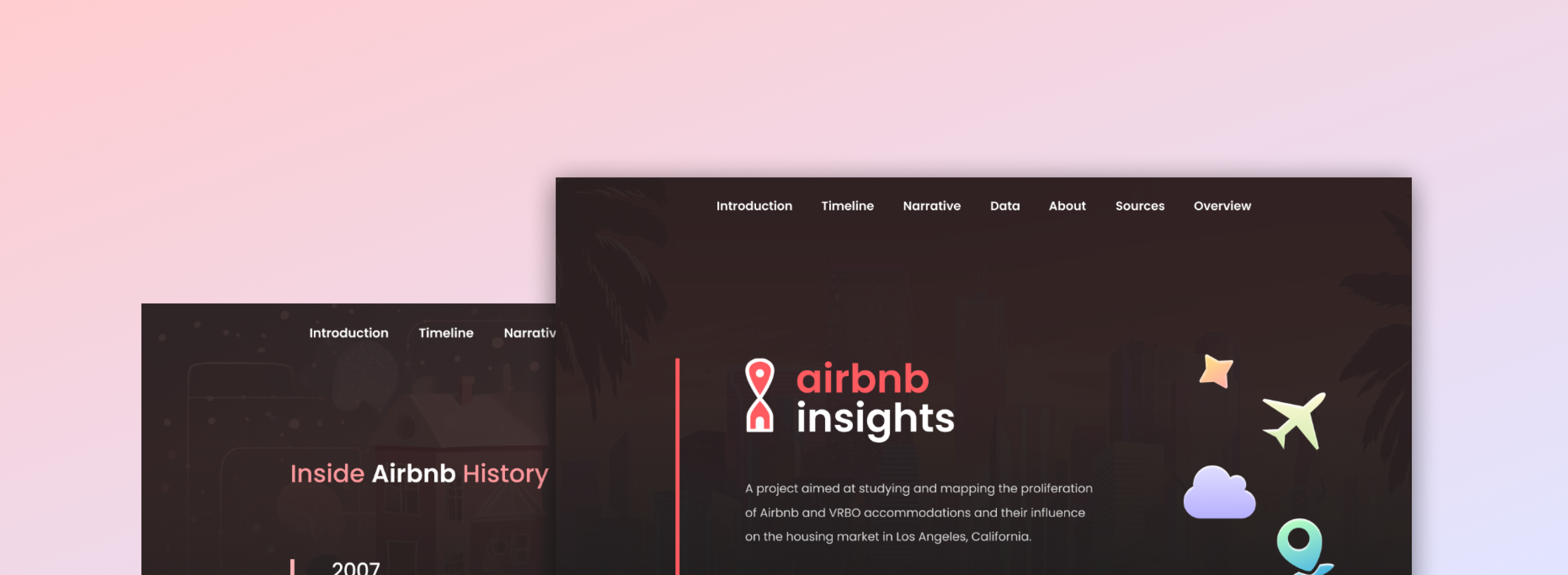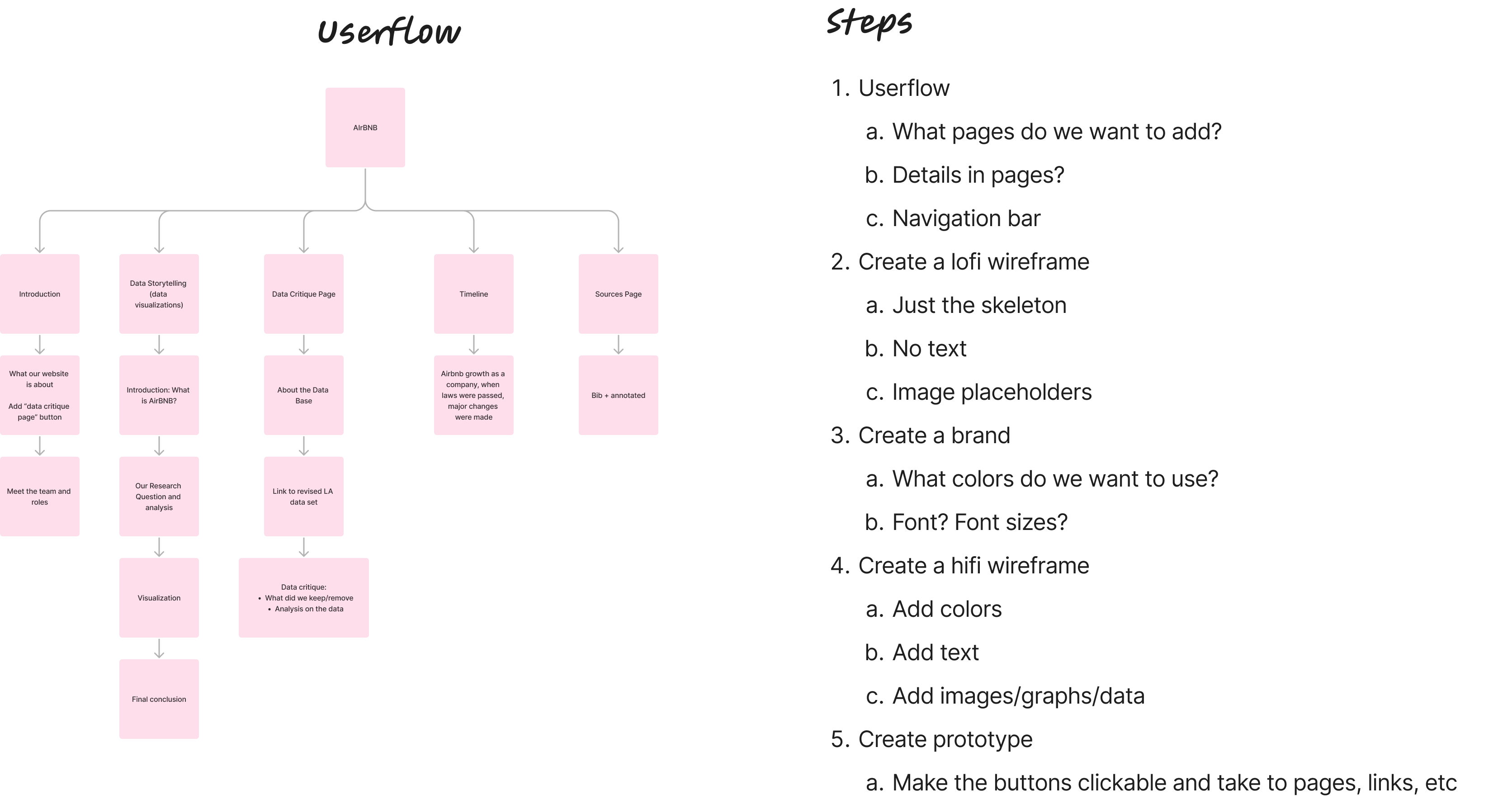julie

Our initiative focused on examining the impact of Airbnb and VRBO accommodations on the housing market in Los Angeles, California.
We aimed to uncover the intricate relationship between short-term rental platforms and local communities, recognizing the consequential effects on housing landscapes. Our mission was to provide valuable insights for policymakers, researchers, residents, and businesses, aiding in informed decision-making and the formulation of sustainable housing policies.
In my role as the web designer for this project, I used Figma to craft the website design and transformed it into a functional HTML and CSS format, subsequently hosting it on GitHub.
This website was a submission for Digital Humanities 101 at UCLA.
UX/UI Designer
The website development process involved creating it on Figma and then hosting the final version on Github. Starting with Figma, I created a user flow chart. This strategic blueprint outlined necessary pages and subcategories required to present our research and data. The user flow chart serves as a great foundation for our low-fidelity mock-up, the skeletal framework of our site. This preliminary mock-up allowed us to conceptualize content placement and navigation to ensure an intuitive and user-friendly experience.
I aimed for a clean website design with a minimal number of navigation bars, focusing on sections directly relevant to our data. Our key sections—Introduction, Narrative, Data, and About—were strategically organized to convey a cohesive story. By prioritizing this order, I ensured a streamlined user experience. Emphasizing aesthetics, we crafted wide margins to prevent visual strain and aimed for an overall visually pleasing presentation. As I progressed to the high-fidelity stage, our website began to take shape with the incorporation of site branding, custom designs, icons, and visuals—all thoughtfully created by our team. All that was left was to export our HTML and CSS files to be hosted on Github.
